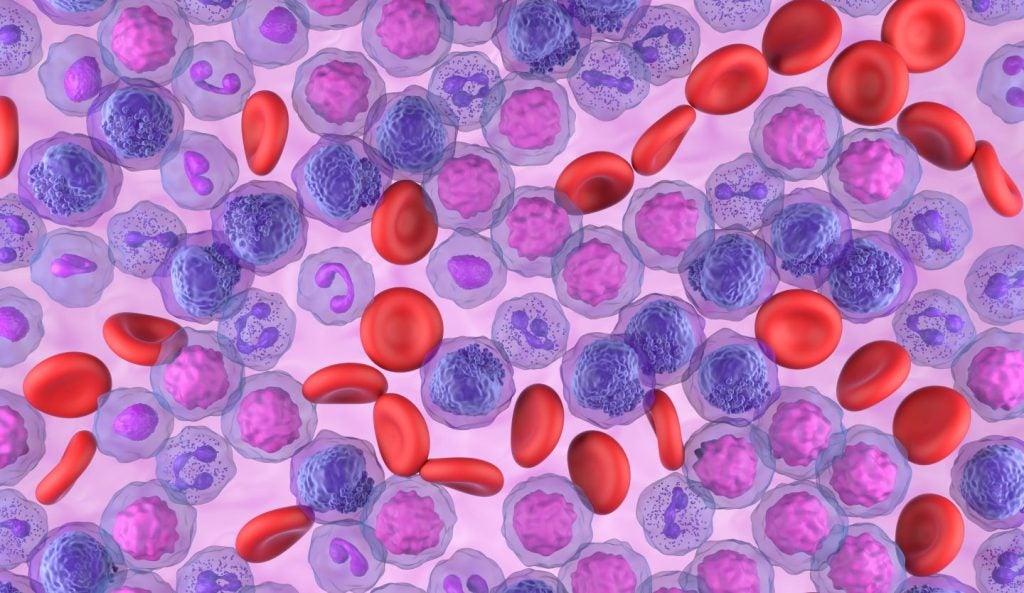US-based biotechnology company GlycoMimetics has released topline results from its Phase III clinical trial of uproleselan, an E-selectin antagonist designed to treat relapsed/refractory acute myeloid leukaemia (r/r AML).
The randomised, double-blind, placebo-controlled study has been assessing uproleselan plus one of two chemotherapy regimens: mitoxantrone, etoposide and cytarabine (MEC) or fludarabine, cytarabine and idarubicin (FAI).
Patients were given either uproleselan or a placebo over one cycle of induction and up to three cycles of consolidation if applicable.
The study included 388 patients enrolled across 70 sites in nine countries.
Its primary endpoint was overall survival without censoring for transplant, while secondary endpoints included the incidence of various oral mucositis, complete remission rate and remission rate.
According to the findings, the study did not show a statistically significant improvement in overall survival when uproleselan was combined with chemotherapy compared to chemotherapy alone.
Despite not meeting the primary endpoint, subjects treated with uproleselan experienced a median overall survival of 13 months, as opposed to 12.3 months in the placebo arm.
The adverse events reported in the trial were in line with the known side effects of the chemotherapy used.
Uprolesan is also currently being trialled for treating newly diagnosed AML in adults aged 60 years and older who are suitable for intensive chemotherapy.
GlycoMimetics CEO Harout Semerjian said: “While the outcome of our Phase III study in r/r AML is not what we hoped, we wish to thank the investigators, the participating patients and their families for their dedication to this large, well-controlled randomised study.
“We are thoroughly analysing the data in collaboration with medical, statistical and regulatory experts and are committed to submitting a comprehensive data analysis for presentation at an upcoming medical meeting.”
Earlier this year, GlycoMimetics reported positive initial data from a Phase Ia clinical trial of GMI-1687 for treating sickle cell disease.









